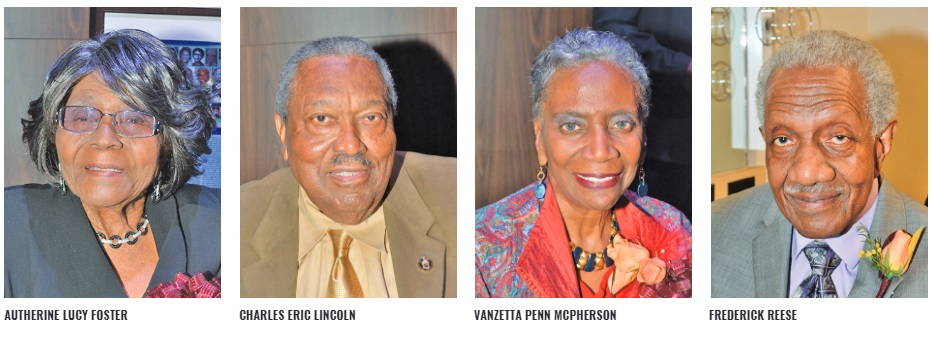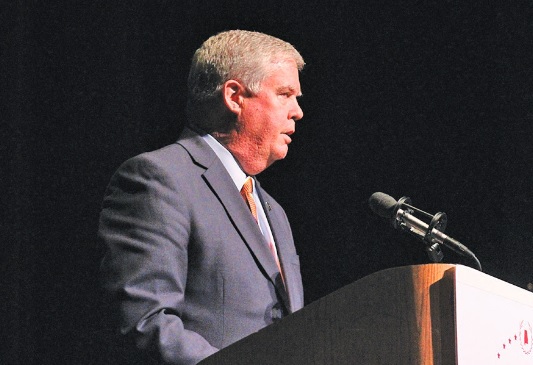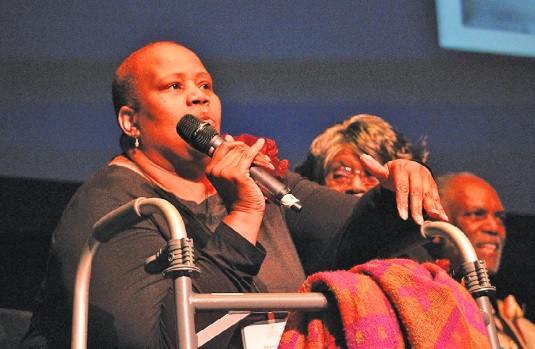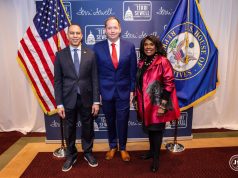
By Ariel Worthy
The Birmingham Times

Educating students is a big part of the 2017 Alabama African-American History Calendar.
“We’ve used [the calendar] as a resource tool that teachers can go to any time during the year when they’re teaching about a famous person, event, or time in history,” said Nettie Mullins, social sciences education specialist at the Alabama State Department of Education (ASDE). “We have lessons about each person in the calendar over the last seven years. That’s lessons about 84 people and groups.”
The ASDE has added information about each honoree for teachers to use in their classes and programs—and they go beyond the subject of history, Mullins said.
“We had musicians, physicists, engineers, scientists that are still alive,” she said. “Those lessons can be taught in music and science classes.”

This calendar marks the seventh year that AT&T is highlighting the achievements of 12 notable Alabamians for a calendar year. With the 2017 calendar, 84 African Americans, who have had a compelling impact on Alabama and beyond, have been honored.
This year’s honorees:
- renowned musician Cleveland Josephus Eaton II;
- retired judge Vanzetta Penn McPherson;
- renowned scholar Charles Eric Lincoln;
- the first black student to attend the University of Alabama, Autherine Lucy Foster;
- civil rights activist and Selma marcher Frederick D. Reese;
- singer-songwriter Arthur Alexander;
- Browder v. Gayle plaintiffs “The Montgomery Four”—Aurelia Browder, Claudette Colvin, Mary Louise Smith, and Sue McDonald;
- drug store owner James H. Finley Sr.;
- physician Dr. James A. Franklin Sr.;
- original Dreamland Barbecue owner John Calhoun Bishop Sr.;
- educator and community activist Charles Gomillion;
- comedian Rickey Smiley.
AT&T Director of External and Legislative Affairs Glyn Agnew said the honorees show students that people “like them, who started out with small, limited resources, were able to persevere, were dedicated to working hard, and were able to achieve a lot of things.
“A lot of us don’t have a lot in the beginning, but we as people are able to push through and persevere to do great work,” he said.
AT&T works with the Alabama Department of Education to make the calendars part of school core curriculum, Agnew said.
“It’s important for students, especially African-American students, to see that people who look like them are able to succeed in different ways,” he said.

Each lesson is on the Alabama Learning Exchange (ALEX), which provides teachers and professors throughout the state access to a variety of podcasts, lesson plans, and projects.
“We made sure to implement these people into lessons in the core curriculum,” Mullins said. “The curriculum is the standard. If you’re in the fourth grade and studying about the civil rights movement, you now get to learn about people you don’t hear about often, like Birmingham native Oscar Adams, the first African-American Alabama Supreme Court justice.”
The calendar and its lessons are important because many in the upcoming generation do not know about black history like previous generations, Mullins said.
“There is a lot of misinformation floating around now,” she said. “They only know what people are saying now, but they don’t know the true background of what led to where we are now.”
Reese, one of the 2017 honorees, said a lot of children had questions about his role during the civil rights era.
“It took a lot of courage and determination to do what I thought was right,” Reese said. “I’m here today because I listened to [God]. We cannot see the end of our work, so if He knows how it will end, you have to trust Him. When you look back on your life, at what you have done, you want to make sure that people coming behind you have something to look at to show them the way, as well.”




